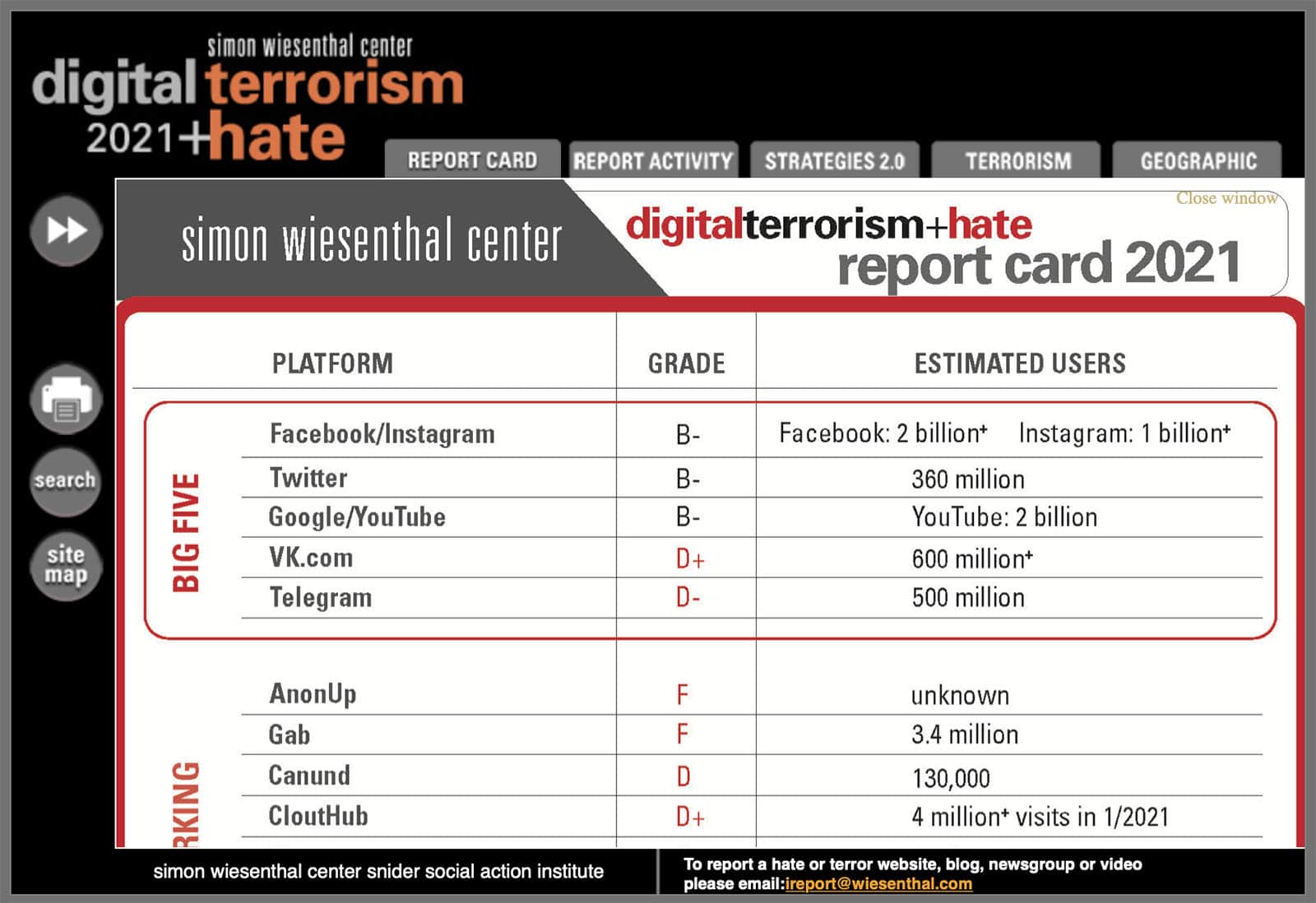 Screenshot from report
Screenshot from report The Simon Wiesenthal Center released their Digital Terrorism and Hate Project on March 16.
In a Zoom webinar discussing the report, Associate Dean and Director of Global Social Action Agenda Rabbi Abraham Cooper said that the January 6 riot that resulted in the storming of the Capitol building “did not happen in a vacuum. The rhetoric that led up to it… created that environment, pushed those themes, and what happened on January 6 was basically and frankly predictable.” He also said that the rioters thought they were “going to save the United States of America.”
Cooper proceeded to criticize social media companies for being inconsistent in how they deal with extremism, pointing to how Twitter has blocked former President Donald Trump but has allowed Iranian Supreme Leader Ayatollah Ali Khamenei to remain on the platform; Cooper argued that this amounted to “mainstreaming” Khamenei. He added that Twitter has shown no indication they’re going to take action against China’s foreign minister for recently denying that the Chinese government putting Uyghur Muslims into internment camps, nor has Twitter shown any willingness to go after Nation of Islam leader Louis Farrakhan for promulgating conspiracy theories against the COVID-19 vaccines.
Cooper also revealed that the Wiesenthal Center recently had meeting with Parler — which describes itself as an alternative to Twitter that is committed to freedom of speech — about extremism. Parler gave the center a similar reaction to Twitter, saying that they believe in freedom of speech for everyone.
Islamic extremism has significantly diminished on social media, but it’s likely to re-emerge now that ISIS has regained its footing in Africa, Cooper warned. Rick Eaton, director of research at the Simon Wiesenthal Center, also said that ISIS has a feed on the Telegram app.
Eaton presented several examples of online extremism during the webinar, including a Parler post stating that Trump supporters are the new Jews in a new Holocaust, a tweet from Antifa that ended up being a hoax from a far-right individual and a tweet accusing Beverly Hills city councilmembers of being “racist rich f—s, a majority of which who are Jewish and should know better” after tear gas was used against protesters in June.
Cooper argued that social media has become “our lifeline to our work and our families” due to the COVID-19 pandemic lockdowns and thus its impact has been “tremendously heightened.” He also warned that it doesn’t take large number of extremists to change history, only enough devoted ones. “Our job is to be a little bit out front, look to trends,” Cooper said.
Read the full report here.























 More news and opinions than at a Shabbat dinner, right in your inbox.
More news and opinions than at a Shabbat dinner, right in your inbox.